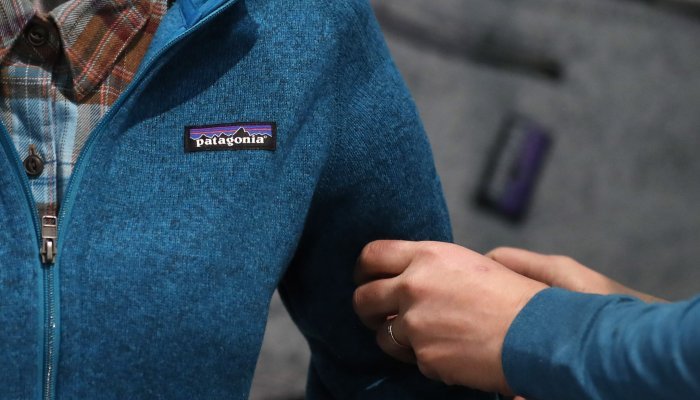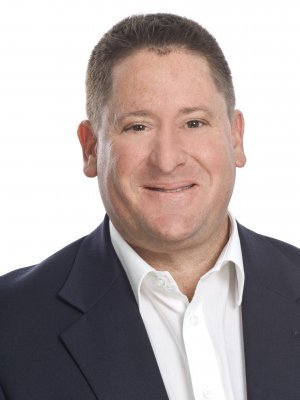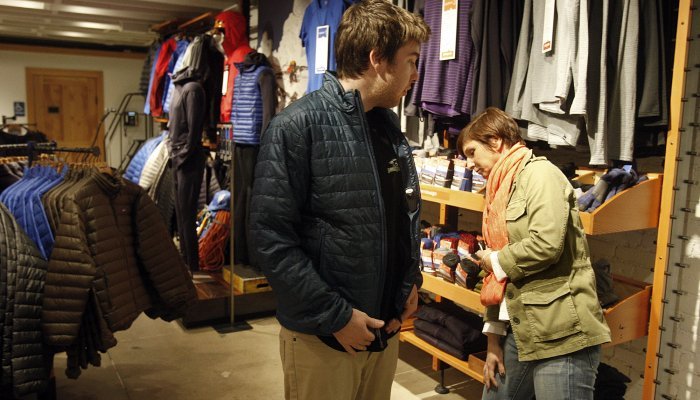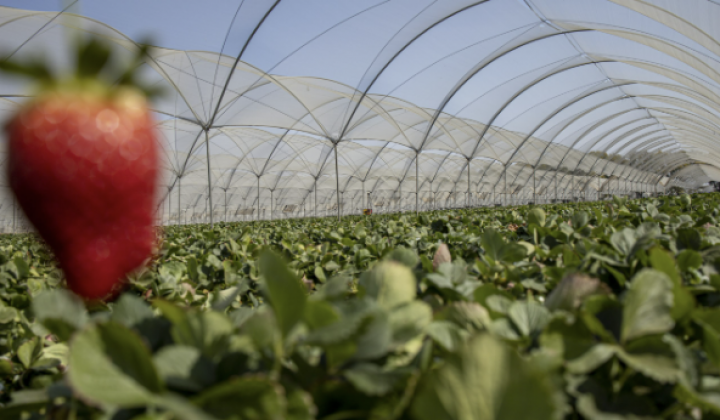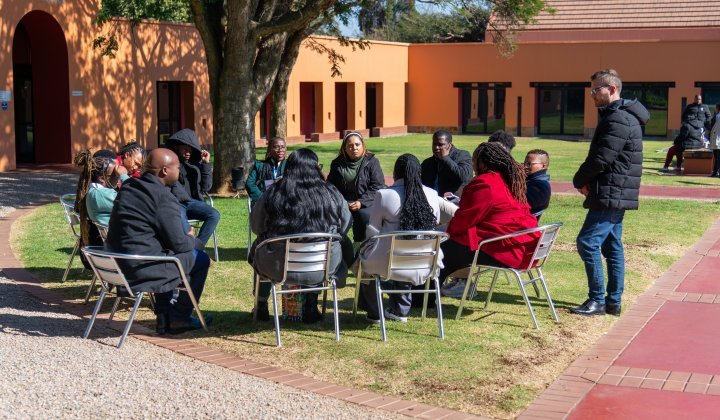Patagonia, a brand synonymous with outdoor equipment and clothing, produces products for a dizzying array of sports from fly fishing to rock climbing, trail running to surfing. Until recently, the company was owned by founder Yvon Chouinard but in September 2022, Chouinard bucked the trend of so many billionaire founders by giving away his entire ownership of the company to a non-profit entity, which is tasked with using the substantial proceeds from the company to fight climate change and environmental degradation.
This act is unsurprising for those who have followed the style of leadership, management and consumer education and engagement that is baked into the very DNA of Patagonia.
Chouinard, a self-confessed "dirt-bag" – an affectionate term referring to people who make the outdoors their primary pursuit, fitting in work around their love for nature – moved at an early age with his family from Quebec, Canada to the US and soon found himself enamoured with outdoor life.
The Chouinard Equipment Co, his first venture, manufactured climbing hardware, which was sold via mail order. At the bottom of the mail order form was the disclaimer: "Expect delays during climbing season".
His first foray into outdoor clothing was importing rugby jerseys from Scotland, which were tough enough for climbers’ use, and this led to the launch of Patagonia in 1973. Chouinard has always been a kind of visionary-at-large for the company, never filling the role of CEO. This created an interesting separation between the values-driven leadership he espoused and the day-to-day operational management that was left to professionals. And yet a kinder, gentler, and more conscious brand was born and raised by Chouinard and his team.
From early on the company considered not just the impact on the environment of their clothing and equipment, but the way their employees were treated. Long before it was fashionable, Patagonia included onsite daycare and even the facilities for parents to have their children alongside them in the workplace. A co-founder of the One Percent for the Planet movement, a non-profit which encourages firms to donate 1% of revenue to grassroots environmental causes, Patagonia worldwide gives around $145 million a year to supporting nascent organisations engaged in localised environmental action.
In a campaign for 2011 Black Friday, Patagonia took out a full-page ad in The New York Times stating: "Don’t Buy This Jacket". They implored customers not to purchase another outdoor jacket if they didn’t need one, enumerating the huge cost to the environment incurred by the production, transport and consumption of the jacket. This kind of de-marketing is practiced in other subtle ways by Patagonia stores, many of which close on Black Friday, suggesting that customers should head into the outdoors rather than spending their time and money on unneeded consumerism.
Patagonia’s style of retail and consumer engagement – conscious consumerism – is often contrasted with fast fashion.
Fast fashion is built on the strategy of cheaply made and rapidly mass-produced clothing, fuelling consumer demand and adding to the environmental impact of apparel throughout its lifecycle. According to Green Pop, a Cape Town-based NGO working to reforest sub-Saharan Africa, the world now consumes approximately 80 billion pieces of clothing a year, a 400% increase over the last twenty years. The fashion industry is the second-largest polluter on the planet, second only to the oil industry. It is this harsh environmental reality that drives the conscious movement.
Conscious consumerism
Conscious consumerism is an approach to consumption that encourages people to buy less, live minimally and consider the environment in each of their purchases. The stimulation of desire and planned obsolescence of so many consumer products and brands, which encourages people to buy more than they need, is slowly finding less traction with environmentally aware Millennials. H&M and Zara, two global brands at the forefront of fast fashion, are beginning to embrace the movement, albeit in a limited way, with H&M moving toward a circular economy model and Zara committing to using sustainably sourced fabrics.
Patagonia has been advocating for this approach long before most people were even aware that there was an environmental cost to apparel. Lisa Williams, former Patagonia chief product officer and now CEO of Eileen Fisher, another slow fashion brand, was quoted as saying, "The most environmentally sustainable jacket is the one that is already in your closet."
It is this commitment to the planet that motivated Grant Cleghorn, owner of the Cape Town Patagonia store, to engage with the brand and bring it to South Africa.
Cleghorn is a veteran of the outdoor equipment and apparel industry and has seen many brands that started with deep roots in their sport’s community move from being an authentic voice for their constituencies to a fashion brand driving growth and sales at all costs.
Cleghorn has instead embraced the "Patagonia Way" with his four South African stores, inculcating a culture close to that espoused by Patagonia itself. Says Cleghorn, "I want my money to align with my values – this not only makes good business sense, but it is clearly the way the world is moving. Customers are demanding standards and authenticity – they quickly see through all the greenwashing."
The stories we wear
Patagonia’s South African store and the three Gone Outdoor stores that Cleghorn has opened in Cape Town and Johannesburg employ many of the same conscious consumerism practices that are found at international stores. For example, while all Patagonia clothing comes with a lifetime guarantee, the company goes further, encouraging customers to embrace the idea of repairing clothes. Once a month an open evening at a Patagonia store will see dozens of outdoor enthusiasts gathering for craft beer, artisanal coffee and free repair of any outdoor clothing and equipment. This practice helps keep clothing out of landfills and more importantly, as Cleghorn says, "It means the clothing now has a story to tell – our clothes now become the stories we wear."
The Patagonia brand is without doubt a luxury brand, not just in South Africa. These are beautifully designed and manufactured items, built to last a lifetime and priced accordingly. Rather than the usual retail cycle of shareholder-driven growth, overstocked stores and quick sales to make room for the next season of clothing, Patagonia grows slowly and deliberately, often throttling off its production to ensure that its environmental footprint remains within reasonable limits. A US division of the company that supplied corporate branded jackets, a substantial growth sector and one that had increasing demand, was closed as the company found that the business model, while highly profitable, was simply not consistent with the values and ethos for which Patagonia stands.
These values are not just a driver of company strategy but are the starting point for consumer conversations.
"If Patagonia was a country," says Cleghorn, "this Cape Town store would be an embassy." He describes how his team uses the company ethos to engage customers in the brand’s values and traditions related to production and manufacture. From fair trade practices to 100% recycled materials, the product and the price tag tend to speak for themselves once the conversations begin.
Cleghorn is very aware that in the South African context, many of these conversations about the environment and the nature of ethically produced clothing are the domain of the few, with most South Africans just worried about whether they will have enough to get by from day to day. Conversations and engagement about climate action and clean energy seem moot when we are experiencing daily load-shedding, yet Gone Outdoors' commitment to One Percent for the Planet is an essential part of the company strategy.
Cleghorn supports two grassroots organisations: Save the West Coast, which is campaigning against the effects of large-scale mining on the Cape West Coast, and Sentinel Ocean Alliance, a Hout Bay-based NPO that is supporting youth and their engagement with the ocean economy. Support for these organisations came about through relationships and conversation. "We are less concerned with how our support is monitored and evaluated and more interested in an alignment of values and heart. Relationships and trust are important to us, and like Patagonia globally, we try and support grassroots organisations that are led by small, passionate teams making a real difference," says Cleghorn.
Lessons from the global brand
Watching how staff at the Cape Town Patagonia store engaged with the steady trickle of customers flowing into the store on the warm Tuesday morning I visited, I noticed a purposefulness to the engagement and interaction. The upstairs level of the shop houses surf wear and wetsuits (all made from Yulux – a plant-based rubber rather than neoprene, a fossil fuel derivative), but also a small library and free coffee, encouraging browsers to pause and engage rather than just shop and leave. I was left wondering what could be learned from the efforts of this global brand and its newest outpost on the southern tip of the African continent.
Chouinard suggests that the solutions lie with us – individuals, and not corporations. In an interview in 2016 he said, "Well, the reason why we won’t face up to our problems with the environment is that we are the problem. It’s not the corporations out there, it’s not the governments, it's us. We're the ones telling the corporations to make more stuff, and make it as cheap and as disposable as possible. We’re not citizens anymore. We’re consumers. We’re in denial that each one of us is the problem. And until we face up to that, nothing’s going to happen. So, there’s a movement for simplifying your life: purchase less stuff, own a few things that are very high quality that last a long time."
Imagine if we each took on the mantle of that responsibility – that our actions today, every action, every purchase, every conversation, made a difference. Imagine if we believed that truth. What might our world look like?
Professor Jonathan Marks is a full-time faculty member at GIBS specialising in the field of high-growth entrepreneurship and the intersects between start-ups and conscious capitalism. His research and consulting crosses a broad landscape from corporate venture capital to immigrant entrepreneurship and digital inclusion.


